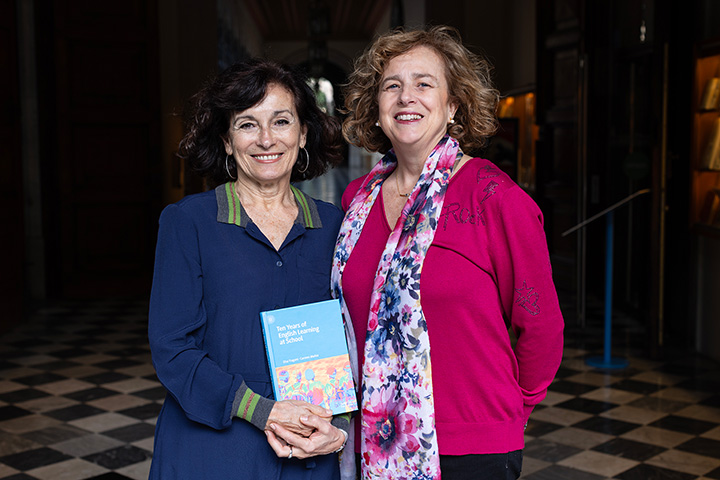The educational level of families and the linguistic aptitude of pupils are key to learning English at school


The researchers analysed the evolution, from the first to the sixth year in primary school, of the English language skills of 140 pupils, and followed almost thirty of them until the end of ESO, in a total of thirteen schools in Catalonia (mostly public schools). The result was the largest longitudinal study conducted in Catalonia on third-language learning. It was carried out with the support of the British Council, the European Commission’s Lifelong Learning programme and RecerCaixa.
The family environment is key
The family environment is a key element when analyzing the assimilation of English language skills. Students with parents who are more involved in the educational process of the kids get better marks in English. “It shows that families with a high level of studies who encourage the kids to progress on the learning of this language and who are with them during the process, be it by watching series or reading books in English, have a clear impact on the positive performance of the children”, says Carme Muñoz. On the other hand, those students who grow up in a less favourable environment and families with a lower level of studies are less encouraged to learn the language: “When parental accompaniment and stimulation is reduced, students notice it negatively. This difference between favourable and less favourable family environments widens as the grades go on and it is difficult to address it in the classroom”, adds Elsa Tragrant.
English lessons as an extracurricular activity
English lessons outside school are another key factor for its learning. “Most of the students who got better marks at English by the end of secondary school are those who took extra lessons (language schools or speaking lessons at home) since fourth grade in primary school, or at some point”, says Tragant. “On the other hand, no students with low grades in English had taken English lessons outside school during secondary school”, notes the UB lecturer.
Moreover, there is an important correlation between the results of the Catalan and Spanish language skills test taken in the sixth year of primary school and the results of the English language test in the same year.
There is also a strong correlation between a competency test and other tests of English comprehension and production, as well as in tests of Catalan and Spanish skills. "This evidence would confirm the hypothesis that first- and second-language learning feeds on common cognitive skills. They also indicate that verbal skills in first languages can later predict aptitudes for learning foreign languages, hence the need to promote them from an early age at home and at school, with activities and routines with a strong verbal component", says Carme Muñoz.
Different student profiles
The researchers have established four learner profiles, according to the young people's perception of learning English as a third language.
In the first group, there are those pupils who consider learning English to be an “impossible” goal. They regard it as a frustrating experience and there is an obvious lack of aptitude. In the second group are low-grade students who admit a lack of effort on their part, but who consider English to be 'necessary' for the future. In the third profile are students who do not use English intensively for leisure purposes and are not attracted to the language, but who are willing to learn English and get good grades. Finally, the fourth profile is made up of learners who see English as a source of satisfaction because they enjoy the subject at school, and it is a language that appeals to them and they already use it regularly in their personal lives.
